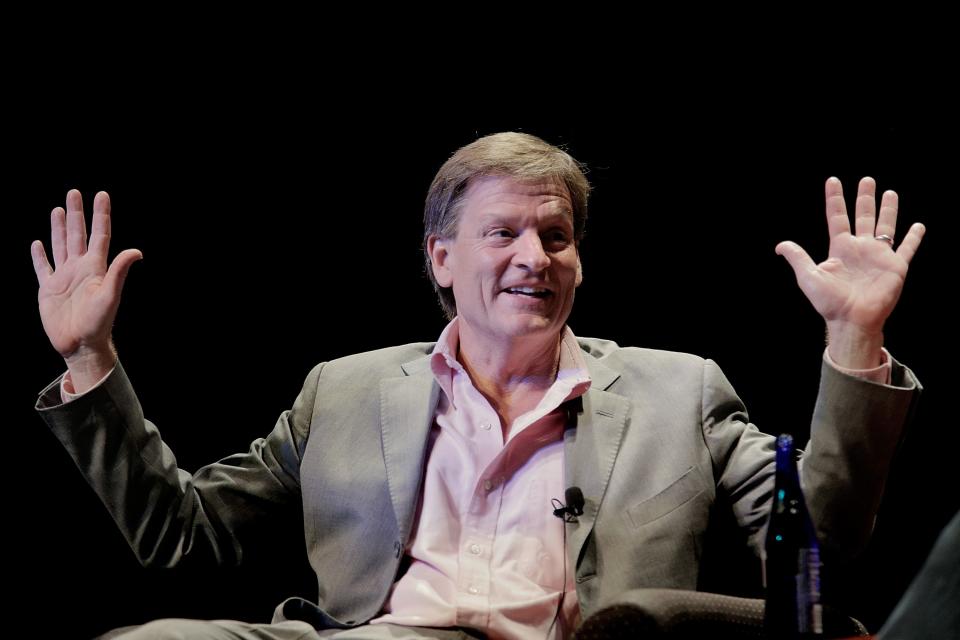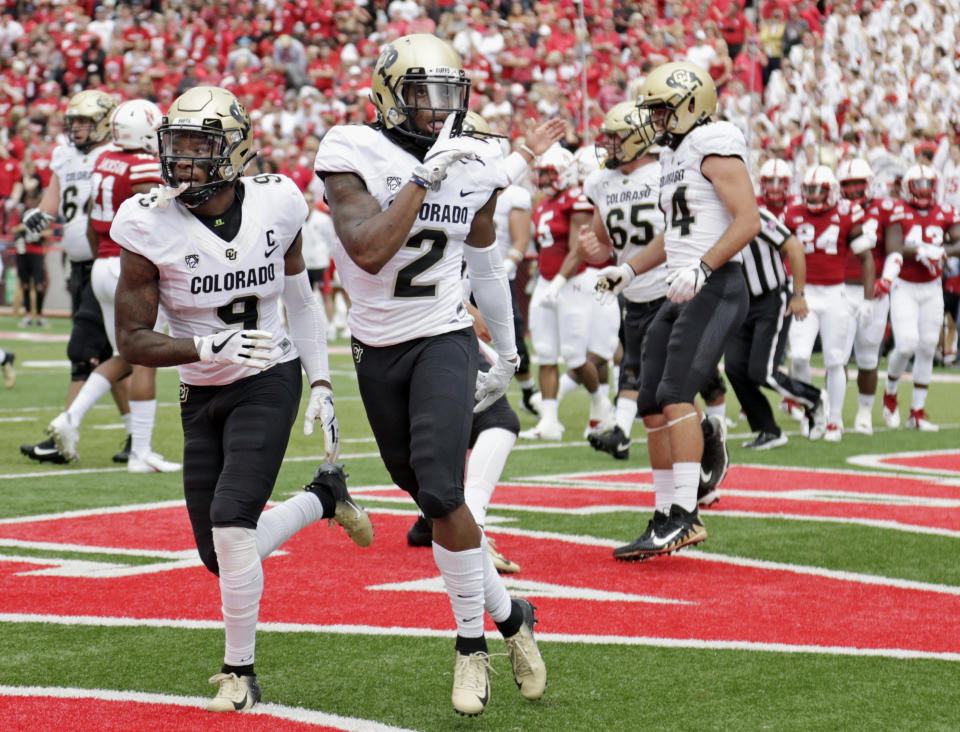'Moneyball' author says analytics 'drained baseball of emotion'
The author of the most famous book about analytics in baseball says analytics have ruined baseball.
Michael Lewis, author of “Moneyball,” joined the Yahoo Finance Sportsbook podcast this week (listen at the bottom of this post) and was asked about the perceived lack of marketable stars in pro baseball in 2018.
“Baseball used to have big personalities,” Lewis said. “It hasn’t accommodated them recently. Baseball has steadily been drained of emotion. The analytics movement has drained it of emotional content. And technology on the field has. What used to be a source of great drama was the manager coming out of the dugout, and lifting third base and hurling it into the outfield, and kicking dirt on the umpire. There’s no point in doing that anymore… You raise your hand and say, ‘Can we review the videotape?’ It’s become much more slickly professional.”

Lewis, who also wrote about pro football in “The Blind Side,” says pro baseball “occupies a shrinking segment of the American attention span.” And last year, amidst the NFL’s ratings dip and political controversy, Lewis told Yahoo Finance the NFL could be the next “big short.”
Instead, Lewis sees the biggest growth potential in the NBA.
“Basketball is the one American sport that has a shot to be a truly global sport like soccer,” he said on the podcast. “It’s a global sport. It’s a bigger market. The players, once they are signed, are totally in control in a lot of ways the baseball and football players are not.”
And Lewis shared a particular pet peeve of his amidst the stat revolution in sports and sports media: the ‘win probability’ chart that sports sites display prominently during games these days.
“I am so sick of people telling me what the probability of victory is at any given moment,” Lewis said. “Just leave me alone! Let me internalize that in my own emotional way. I don’t want your numbers.”
Legal sports betting is ‘a big deal for baseball’
Stats and analytics have played a central role in the rise of legalized sports betting. After the U.S. Supreme Court in May struck down PASPA, the federal ban on sports betting, businesses that sell betting data have benefited and pro leagues have rushed in to capitalize.
Lewis believes, as most do, that state-by-state legalization of sports betting, “will multiply the value of franchises. It’s a big deal for baseball. I think if you own a baseball franchise the value of your franchise just doubled.”

On the other hand, Lewis is no fan of sports betting from a social point of view.
“I think if you rewind the tape in this country, there’s a very good argument that gambling should just be illegal everywhere,” he says. “It’s gone from being a social taboo to being a way the government raises revenues. Essentially it’s a regressive tax. So, I don’t approve of it, I don’t think it’s a great thing at all, but I can see how it’s a good thing from the narrow prism of the business interests of the franchises.”
‘The NCAA should be ashamed of itself’
Finally, as the author of multiple bestselling nonfiction books about young professional athletes, Lewis has strong views on college athletics.
Asked about the NCAA and the ongoing debate over whether college athletes should get paid, Lewis said: “When I was working on ‘The Blind Side’ I became outraged. I thought they should be paid. … They’re professional. They spend so many hours a week on football, there’s not much left over. And so many of those kids are black and poor. And the reason I got so outraged was, all right, rip them off by not paying them for their labor, and not really giving them an education. But for god’s sake, don’t erect this principled barrier between them and all these rich white guys in the stands who are interested in them for this brief little moment in their lives.”

The NCAA typically points to its rule of “amateurism” as the reasoning behind its strict rules regarding athletes earning money outside of tuition. Lewis rejects the notion.
“It’s not amateurism,” he says. “Amateurism would be the school not making money. Amateurism is Nick Saban not making $8 million to coach the team. The schools are complicit in all this… I think it all stinks. And I think the NCAA should be ashamed of itself. And one day it will be fixed, because it actually is very un-American. We have markets here. People should be free to sell their labor in the market.”
Michael Lewis is this week’s guest on the Yahoo Finance Sportsbook podcast. You can listen below.
—
Daniel Roberts is the sports business writer at Yahoo Finance. Follow him on Twitter at @readDanwrite.
Read more:
Trump’s NFL crusade is USFL history repeating
Kareem Abdul-Jabbar: Colin Kaepernick ‘paid a tremendous price’
Amazon and MLB are beefing up baseball analytics


